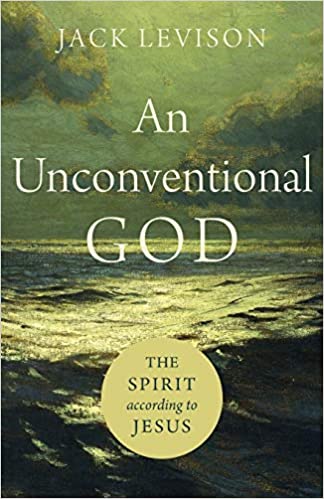BEN: I think in chapter six you’ve pointed some excellent points about the issue of lying to the Holy Spirit and blasphemy. In regard to the story of Ananias and Sapphira however their main sin was not economic, it was the lies they told about their sale of the property. This very clear on several counts. Peter says to them ‘was the money not yours even after you sold the property’, and the answer to the question he raises is yes. Neither Acts 2 nor Acts 4 advocates that everyone in the community should sell everything and put into the community fund, which the community then will distribute. Rather, what is being said is no one is claiming some sort of individual exclusive right to their property, not least because it’s actually all God’s property, not the individual’s or the community’s property, and it was expected that each would give according to their ability so that no one in the community would go without the necessities of life, hence the setting up of dole for widows and orphans and special ministers to distribute it. No, the major sin of Ananias and Sapphira was lying to God in the person of the Holy Spirit. It was indeed primarily a deeply spiritual issue. Do you disagree?
JACK: I fully agree but would point out that the lie was about money, plain and simple. Plus the the verb, nosphizein, which Luke adopts to describe their holding back, takes us back to the story of Achan in Joshua 7, which is about the illegitimate holding back of possessions. Jesus drew an intimate connection between economics and spirituality; the early church did, too. So I would say I fully agree with you: it was a deeply spiritual issue. But I would disagree with someone who would go on to say: it was not a deeply economic issue. It was both. Then I would add that it was also deeply communal: lying to the community is tantamount in Acts 5 to lying to God.
That is where I would leave it. Their sin violated spirituality. Their sin violated economic transparency. Their sin violated community.
BEN: I like your emphasis on where the Spirit is active, Satan can’t be far away trying to counter the mission, the ministry, the evangelism. This is a rather sobering warning to Christians to watch out when they really are doing God’s work. It suggests that ‘we are not fighting against flesh and blood, but against principalities and powers’. But honestly, there are large parts of the church, especially the more left end of the church that emphasize the social Gospel at the expense of its spiritual roots who either don’t believe in the powers of darkness, or simply have taken this to mean fallen human structures of society, which is not what the NT is talking about by and large (though Revelation suggests that the governing structures can be captive to evil ideas, forces, etc.) Can you help us better balance an approach that takes seriously supernatural evil in the world, without neglecting what Wesley said which was that there is no spiritual holiness without there also being social holiness— caring and serving the least the last and the lost?
JACK: Right now, I am reading C. S. Lewis’ The Great Divorce with a group of undergraduates. Lewis has a profound grasp of evil and good, darkness and light, solidity and ghostliness. At one point, his mentor, the Solid Person George MacDonald, meets Lewis, a ghost on vacation from Hell. They are talking about Heaven and Hell. Lewis says, “Then those people are right who say that Heaven and Hell are only states of mind?” George MacDonald responds, “Hush … Do not blaspheme. Hell is a state of mind—ye never said a truer word. And every state of mind, left to itself, every shutting up of the creature within the dungeon of its own mind—is, in the end, Hell. But Heaven is not a state of mind. Heaven is reality itself. All that is fully real is Heavenly. For all that can be shaken will be shaken and only the unshakeable remains.”
I agree with Lewis to a great extent. I want to underscore the reality of Heaven rather than the existence of Hell, the glory of God rather than the evil of Satan. Yet I believe evil is not just absence, Satan is not just the opposite of all that is good. Satan, if not a person, is a force to be reckoned with, an inevitable inertia that leads us away from God.
I’m finishing a commentary on the ancient Greek Life of Adam and Eve. That’s what preoccupies my research mind these days. In the story, which fancifully retells the story of Adam and Eve, the devil approaches Eve. She worries that God will be angry with her if she eats the fruit. The devil doesn’t go on to say that God won’t be angry. The devil goes on to say that the tree is really valuable. See what happens? Distraction! Inattention! I believe evil is distraction from the Good. I believe Satan is the Master Distractor. I believe we lose our first love not because we mean to but because we become inattentive, distracted.
Social holiness. Personal holiness. These require of us a long obedience in the right direction, as my friend Eugene Peterson titled one of his books. There can be no place for distraction, no foothold for inattention.













